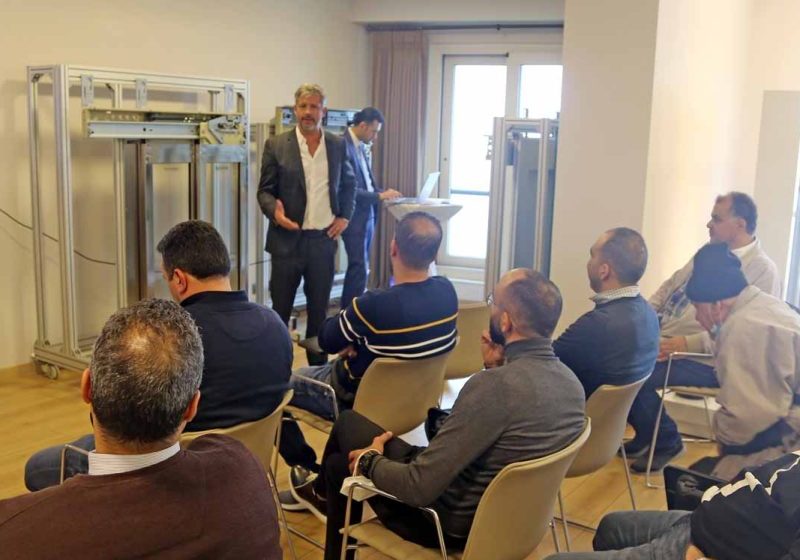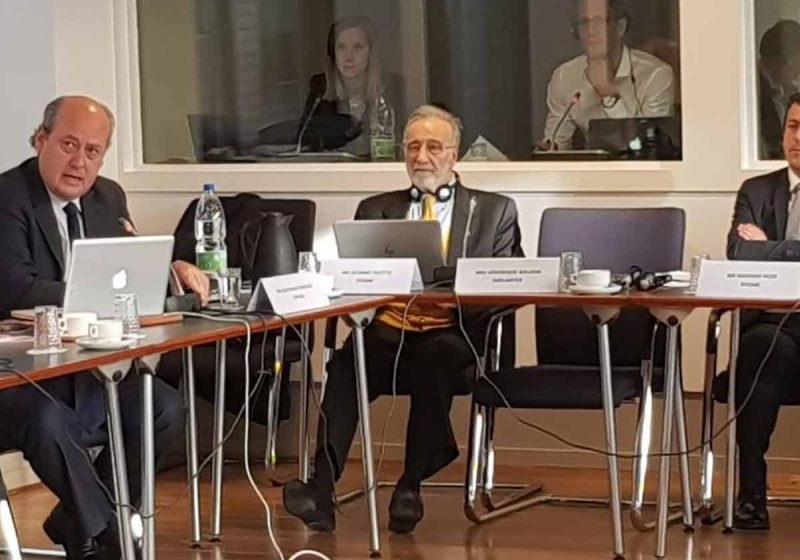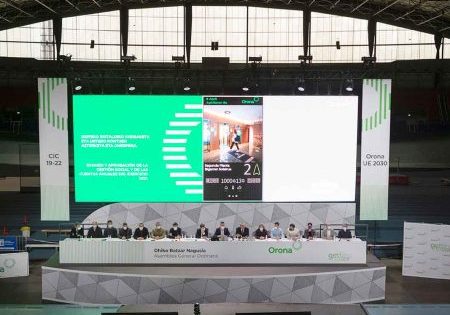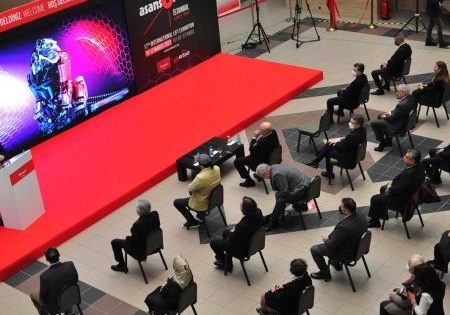Many years of professional life in the lift business in Germany as a female led to the idea to examine details about the status and perspective of other women in the lift industry. A questionnaire and a direct mailing to females in the lift industry in 2016-2017 first led to answers and interviews; another two on gender issues followed in autumn 2021. Watching the industry in Europe as the Deutschland correspondent for ELEVATOR WORLD Europe since 2019, as well as many contacts with females at industry events, brought further insights.
The summary is disillusioning: Only a select few European lift associations or associated lift companies are aware of the gender topic and its consequences. The only sponsor of the WoLIE Initiative so far is the German industrial association VmA Vereinigung mittelständischer Aufzugsunternehmen (German Federation of Medium-Sized Lift Companies). Though the few women in the industry feel the topic is important for themselves and their careers, it is also vital for the future of the lift industry, taking into account the dramatically rising demand for qualified personnel.
Thus, the Women in the Lift Industry in Europe (WoLIE) Initiative’s aim to assemble all females working in the lift industry in Europe and beyond came alive. WoLIE gives them a protected space to exchange information and ideas with other females in the industry.
This paper focuses on six relevant topics:
- Presentation of the WoLIE Initiative
- Statistics on Working Women
- Associations as a Mirror of the Lift Industry
- Support for Gender Issues from Politics
- Insights from Women in the Lift Industry
- Gender Policy in the Lift Industry
The hope is this paper will help the next generation of
women step out of the shade.
2. Presentation Of The Wolie Initiative
Firstly, the WoLIE Initiative assembles all females working in the lift industry in Europe and beyond, especially in the technical field or as managers. So far, no statistics about WoLIEs exist. Therefore, an indirect approach is taken, as described in this paper. From these data, women make up around 15% of the lift industry. As they are so few, WoLIE gives them a protected space in which to exchange information and ideas with other females in the business.
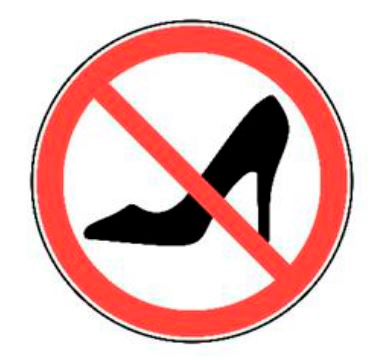
Secondly, WoLIE also welcomes males who want to support females in the lift industry. The same applies to companies looking for examples to attract more female personnel or institutions that support diversity and gender issues.
The third aim of WoLIE is to make the lift industry aware that there are so few women working in this field and that there are still prejudices, as well as assets and drawbacks, from all persons involved. Public and personal information and advice will help overcome this suboptimal situation.
The WoLIE Initiative is an activity that was started and is promoted privately by your author. A board and committees will be installed if the need arises and funding is sufficient. Information about the initiative and about sponsoring opportunities can be found on wolie.eu.
2. Statistics On Working Women
Svein H. Kjærnet from HLF National Norwegian Lift Association stated, “The Norwegian elevator industry is a man-dominated business. It is about 1.3% women among the educated installers.”
Some statistics in Table 1 give an impression of the female labor force in Europe, generally. More men are working than women, mostly in higher-ranking and better-paying jobs. Over the last 10 years, there has been only a slight advancement toward more females in attractive positions.
3. Associations As A Mirror Of The Lift Industry
Since April 2020, the WoLIE Initiative has had a new ideational sponsor, the German Federation of Medium-Sized Lift Companies (Vereinigung mittelständischer Aufzugsunternehmen VmA). The VmA (vma.de) represents independent, medium-sized companies — from one-man operations to larger, mid-sized companies — some of them firmly in women’s hands and all with many female employees in all key areas of the more-than-70 member companies.
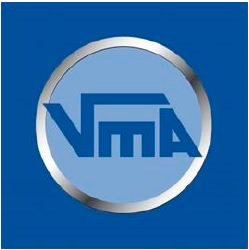
“We as the VmA consider the topic of ‘diversity’ to be important, especially in light of the increasing shortage of qualified personnel,” says VmA 1st Chairman Ralph Kanzler of Kanzler Aufzüge GmbH in Ulm, Germany. “We will, for example, inform our members about WoLIE events, as we have already done for interlift 2019.” Your author, as initiator of WoLIE, adds, “We are grateful to the VmA for its support because it underlines the importance and promotes [information] dissemination.”
In general, what is the status of women in European lift associations? The data in Table 2 derive from European lift association websites in summer 2016 and five years later, in autumn 2021. However, many provide no names, nearly no site is in the English language and some are even in Russian or Greek. Active persons comprise mainly honorary board members and technical committee chairs. Some paid staff are listed, too, mainly general managers or secretariats. If this is a sign for the activities of the member companies of associations, women are more or less a “rounding error.” Over the past five years, no advancement at all has been seen toward more females in visible roles in the lift industry.
The fact that ANACAM, one of the three Italian lift associations, started a campaign titled “ANACAM Pink” in
October 2017 (anacam.it/news-ed-eventi/anacam-pink-blog/66-anacam-pink-ai-nastri-dipartenza.html) might present a more optimistic impression.
“We recommend [a career as an] elevator fitter as a very good job opportunity, also for females. We do exciting and different things every day!” — Sunniva Utvik and Sofie Berntsen from KONE. These women are two of only four female elevator fitters out of a total of 800 in Norway. Their choice of profession was promoted by the Norwegian Elevator Union. They came into their service maintenance jobs after two years of school and two-and-a-half years of internship in a company, followed by an examination. They do exactly the same work now as the male fitters in KONE Norway. Still, customers can be sceptic, wondering whether the women are as capable as the men. The two women must always prove themselves. The same arises, sometimes, with new colleagues. Later, everything is fine, if they gain others’ respect.
In school, girls are more interested in other topics. To attract more women to the lift industry, they have to see what they will be doing in a job. Utvik’s and Berntsen’s parents supported their choice of profession. They were proud and thought it a good idea for a safe future income. Utvik has two young children. They go to a full-day school. Her husband helps look after them, as well.
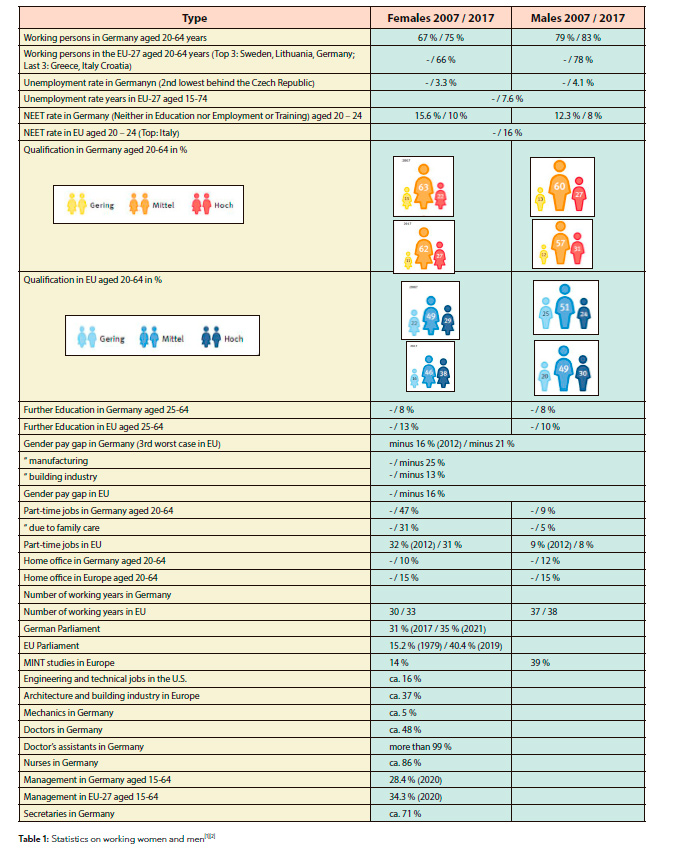
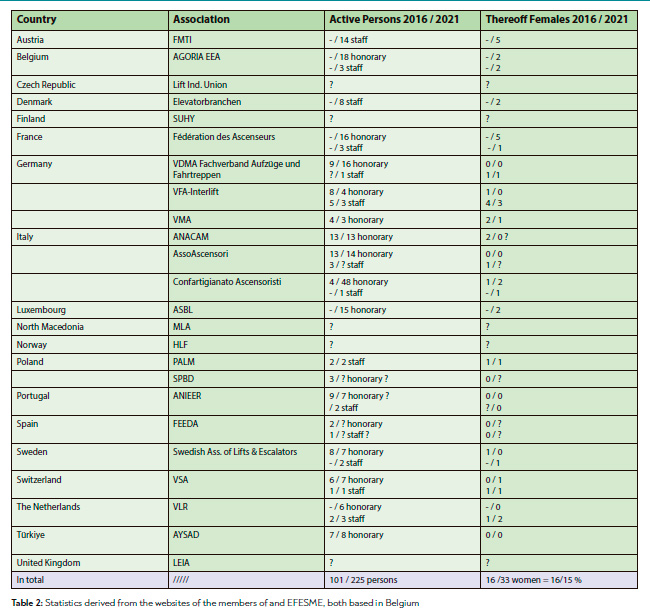
4. Support For Gender Issues From Politics
4.1 Taking Care Of Children
Germany may be at the political forefront of the women’s movement. What helps are things like Kitas (Kindergarten for kids below the school age) and Elternzeit (paid time off for both parents). What is missing is a full-time school like those in almost all other European countries. France and Scandinavia are regarded as exemplary in this field.
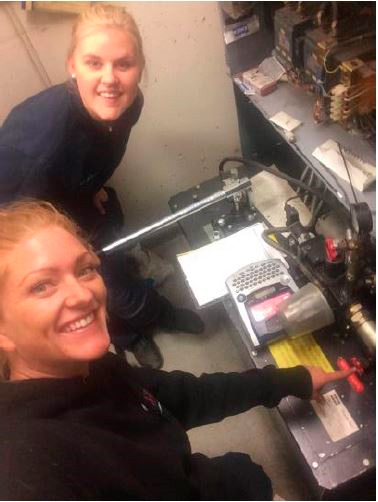
4.2 Quotas
By 2019, 10 European countries had already introduced legal gender quotas for the highest decision-making bodies within private companies to accelerate gender equality. Norway was the first worldwide in 2003, starting with a quota for all companies listed on the stock exchange or owned by the Norwegian State. In 2007, Spain followed as the first country within the European Union (EU), followed by Iceland, Belgium, France, Italy and the Netherlands.
Germany only caught up in 2015: Since 2016, all companies are required to fill all empty seats on supervisory boards with women until a quota of 30% is reached. Similar laws were instated in Austria one year later and, lastly, in Portugal. In 2021, the German government came up with an additional quota for women on governing boards of companies listed on the stock exchange with full employee participation and more than 2,000 staff. These companies shall have a minimum of one female on the board if the board is bigger than three persons, starting with new board members. For companies owned by the German Federal State, the law will be even stricter.
What differs mightily are the sanctions if the quotas are not met. The results are more than promising: 16 years after the introduction of these laws, the percentage of women on supervisory boards is 15% higher than in countries without quotas.
4.3 Sexual Harassment
About a third of women who faced sexual harassment in the EU experienced it in the workplace. EU law distinguishes between sex-based harassment, which is any unwanted behavior directed to someone because they are a woman or a man, and sexual harassment, which involves unwanted conduct of a sexual nature. Sex-based harassment includes sexual harassment and some sexist behavior. Different European countries have been found to have a different understanding of what constitutes sexual harassment at work. For example, the French are three times more likely to believe it is harassment to tell a sexual joke than the Danes. Complimenting someone may not necessarily amount to sexual harassment.
People sometimes try to excuse sexual harassment with one of the following:
- “It was just a joke.”
- “She/he is from a different era.”
- “But she/he is so nice!”
- “She/he is from a different culture.”
- “It was just a one-off.”
- “You’re being too sensitive!”
- “She/he was only flirting.”
None of these excuses are valid.[3]
Drawing from the worldwide #MeToo movement, German law on sexual harassment at the workplace was sharpened. In 2015, 17% of women in Germany said they experienced sexual harassment in their occupational surroundings. As examples, 22% mentioned sexually oriented questions concerning their private life or their personal appearance. Nineteen percent were touched by males without encouragement. On the other hand, 60% of managers and members of the workers’ council were not aware of any measures against sexual harassment in their companies. Most employers lack any regulation about how to proceed if someone becomes aware of sexual harassment in their company.
5. Insights From Women In The Lift Industry
WoLIEs had been meeting regularly at national and European events (before the pandemic). Also, direct mailings with questionnaires were sent out to collect input concerning gender issues in the lift industry.
Six out of nine women of a total of approximately 150 participants met on the second day during the coffee break at the European Lift Congress Heilbronn in October 2018 in Villingen-Schwenningen, Germany, for the second WoLIE Communal Coffee (CoCo). Those around the all-female coffee table represented activities from elevator-related industry and administration, as well as from monitoring and consulting in Germany and Greece. Another participant sent her virtual support from the U.K. The women’s management experience ranged from close cooperation and technical leadership of projects to the disciplinary leadership of 11 people on site (including two men) plus five overseas (including one man).
The introduction round at the WoLIE CoCo revealed two marketing managers and four female engineers. The engineers almost consistently reported they were the first and only female engineers in the company. This did not result in any specific difficulties. But all wondered, why do more women not study so-called “Applied Sciences?” One reason, as disseminated and amplified by the media, might be the reputation of the engineering profession and related technology. Another reason they saw is education: Girls are to wear pink clothes and play with pink toys; they rarely get to play with colorful LEGO® bricks, even if there already are PLAYMOBIL® figures as suitable, more neutral role models today.
Basically, girls and women seem to have lower self-confidence, said the participants. Women would keep asking themselves, skeptically, “Can I really do that?” It has been proven that single-gender lessons, i.e., in robotics, strengthen the female “backbone” significantly at an early age.
Participants generally agreed that women tend toward perfectionism and seek the deeper meaning of their work. For example, more women work in the fields of architecture, environment and medical technology than in elevator construction. This slows down the trend toward careers in technology and management.
The substantial conclusion of this meeting was: For today’s women, basically every career is open. Generally, female participants called for more research and dissemination of knowledge on the question of whether a woman’s career choices and aspirations are purely gender-based. With a loud laugh, the “scientific” statement by WoLIE initiator your author, was noted: “On average, the male brain is slightly larger than the female. But, the female brain is better supplied with blood, thus leading to a higher efficiency.”
The positive atmosphere in the women’s section, which was clearly visible at the bar table in the foyer, attracted a great deal of attention from male participants in the area. Some approached the group to inquire about the background of a meeting of female participants or to express their interest in the WoLIE Initiative.
Participants in the WoLIE CoCo were strongly in favor of further meetings of women in the lift industry, preferably across national borders. The exchange of experiences gives the individual woman strength and, as a group, women are better perceived in industry.
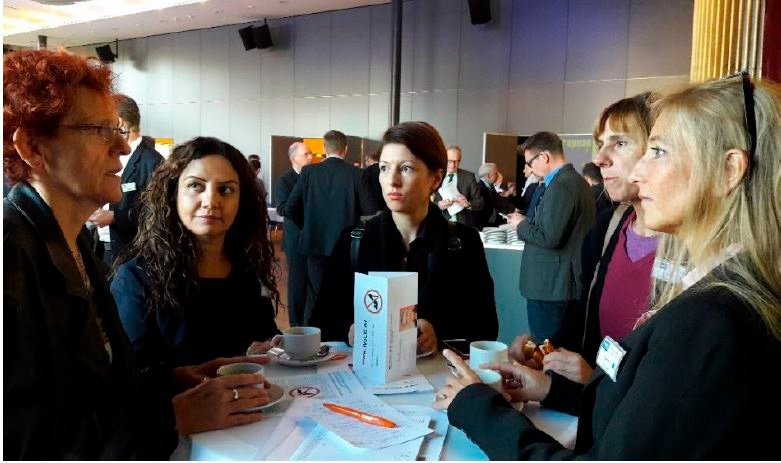
There have been more WoLIE CoCos, for example at the Schwelm Symposium in June 2019, where female participants observed:
- “Meanwhile, several companies in the lift industry have actively taken part in the Girls’ Day, like the Boys’ Day. Their plan is to familiarize their offspring with this industry early on. Wouldn’t it be seminal to change the title of the event to Kids’ Day? At these affairs, the girls like to watch CAD (computer-aided design) animations.”
- “In Western Germany, women in technology and management in the lift industry are still exotic. Ladies hear comments like, ‘You are taking away a job from a male,’ ‘Females don’t do engineering well’ and ‘You will become pregnant anyway!'” To prevail as either a female engineer or a manager in a company takes time. Customers have much fewer problems with acceptance.”
- “In Eastern Germany, many things are quite different. Men had to fight for their equal rights. If there have been ill-conceived technical solutions, sometimes, there has been the comment, ‘That must have been a male construction!'”
And how is the situation of women in the lift industry in Europe and the rest of the world? Is there some communal ground, or are there differences? Some answers can be found at interlift during WoLIE CoCo.
Additional insights will be gained via a questionnaire on “Corona (Dis)Advantages for Females.” It is to be expected that the home office rate has risen significantly, leading to double strain for women dealing with their children who are also home.
6. Gender Policy In The Lift Industry
Matthias Horx, founder and owner of the zukunftsInstitut that deals with megatrends in Germany, gave in his lecture on the 10th German Planner Day of Daikin in May 2014 in Germany information about the “female shift” and the influence of the changing role model of women in the working environment. Due to the skills shortage, this is extremely relevant in the air-conditioning industry, which is still dominated by men, as is the lift industry in Europe.
To the many male customers, mostly in small- and medium-sized enterprises, Brenda Borgman, formerly of Liftinstituut in The Netherlands, was very welcome. “Sometimes they reacted ‘funny’ or nervous on the first contact,” she observed.
As one of the oldest companies in the industry, Schindler focuses on diversity. The company set up a diversity committee of eight women and four men reporting directly to the global head of corporate human resources to attract more women into technical and management jobs.
When signing a contract with the Korean Ministry for Gender Equality and Family, Otis reported in May 2020:
“Otis has been championing gender equality and inclusive growth through its strategic programs. It has made the New Culture Declaration to make ‘respect for diversity’ an enterprise-wide culture statement and offers training, workshops, cultural campaigns and mentorship programs to usher in the new wave of culture and ensure management change. Its independent in-house Women’s Council is leading the way in promoting diversity and has hosted various programs accordingly. Examples include mural painting for employees and families to support local communities, bazaars, leadership training and group mentorship for the development of women’s careers.
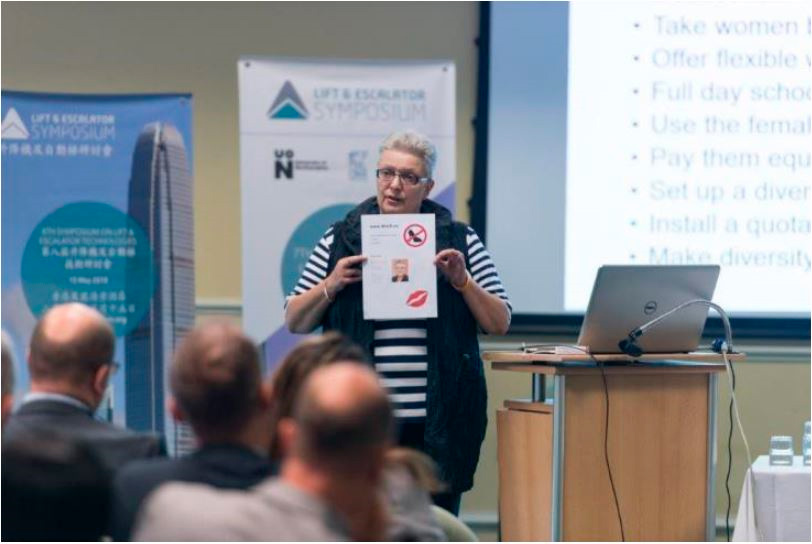
“More than 30% of the company’s global executive leadership is women, including its President and CEO Judy Marks. To ensure access to women and their talents in a more balanced manner, the company plans to strategically hire more women in jobs such as engineering, sales and maintenance. Furthermore, Otis is dedicated to creating a family-friendly environment to prevent a gap in women’s careers, by encouraging partners to take their childcare leave and introducing programs that support different types of work, such as flexible work hours.”[4]
Richard Hughes, sales and marketing manager at digital-advanced-control.co.uk, wrote to WoLIE:
“I would like to introduce Digital Advanced Control to you with a female perspective: We employ nine women out of a total of 35 employees. They are:
- Paula, who works in subassembly on factory floor
- Izabelle, who works in surface mounting and with the soldering machine
- Julie, who works as an assembly inspector
- Pat, who works on PCB (printed circuit board) assembly
- Elise, who works on car top and car operating panel assembly
- Marilyn, who works in accounting
- Jess, who works as a sales administrator
- Terry, who works in the sales department
- Mandy, who is one of the directors.”
Additional information will be gained via a “Gender Policy” questionnaire.
References
[1] DESTATIS, Arbeitsmarkt auf einen Blick, Deutschland und Europa, November 2018
[2] DESTATIS, Frauen und Männer auf dem Arbeitsmarkt Deutschland und Europa, October 2012
[3] EIGE European Institute for Gender Equality website
[4]otis.com/en/us/news?cn=Otis%2520signs%2520Partnership%2520for%2520Inclusive%2520Growth%2520ad%2520Gender%2520Equality%2520in%2520South%2520Kore
Get more of Elevator World. Sign up for our free e-newsletter.




